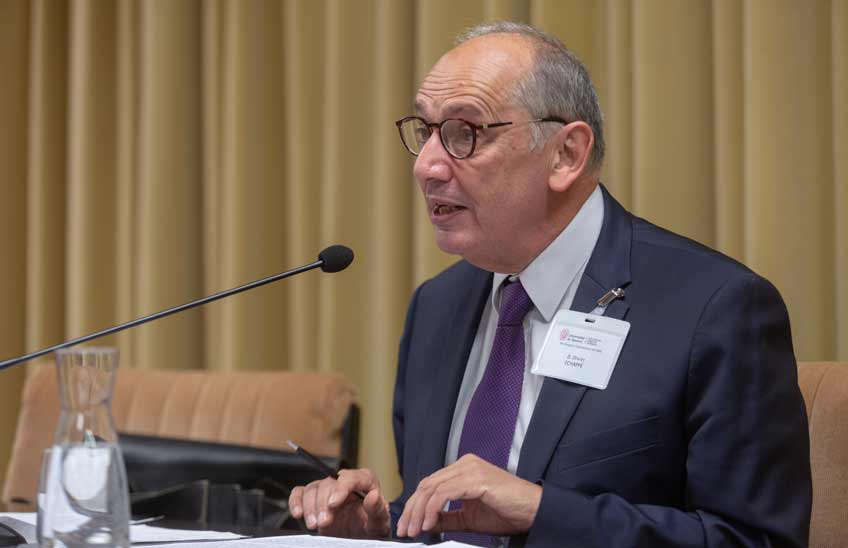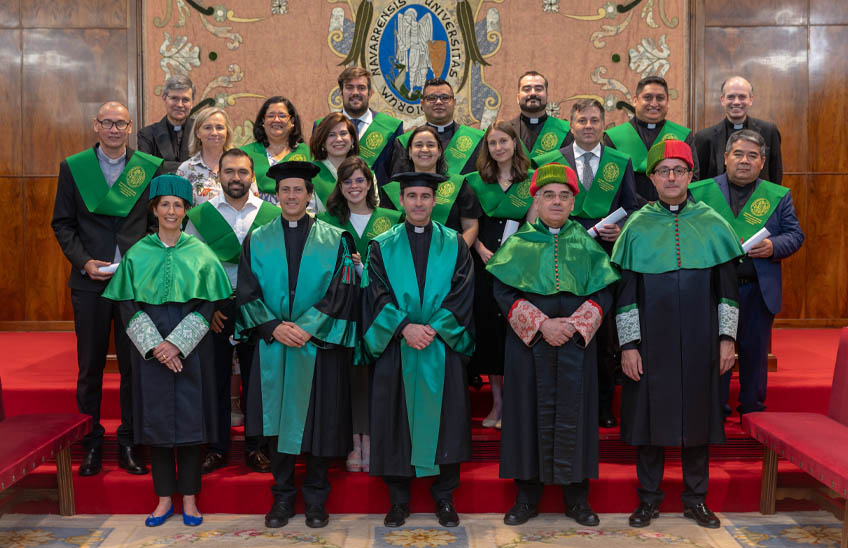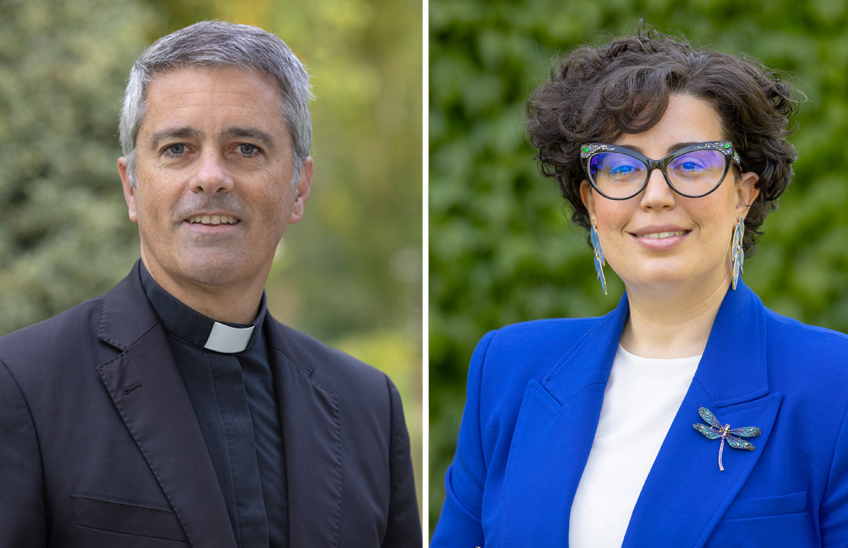Olivier Echappé: "Academics must reflect deeply on abuses of power and conscience".
The professor at the Institut Catholique de Paris and counselor at the French Court of Cassation participated in the XVI International Symposium of the Martín de Azpilcueta Institute of the University of Navarra.

FotoManuel Castells<br>/Olivier Echappé, profesor del Institut Catholique de Paris y consejero en la Corte de Casación francesa, centró su exposición en el abuso de poder en el derecho civil y en el derecho canónico.
30 | 11 | 2023
"We academics must reflect deeply on the abuses of power and conscience, because most cases of sexual abuse are abuses of this subject". This was stated at the University of Navarra by Olivier Echappé, professor at the Institut Catholique de Paris and counselor Dean of the third civil court conference room of the French Court of Cassation, during his participation in the XVI International Symposium of the Martin de Azpilcueta Institute of the School of Canon Law.
Professor Echappé focused his exhibition on the abuse of power at Civil Law and at Canon Law. Regarding the former, he relied on the French Civil Law , which is different from the Spanish one, as he pointed out. In this sense, he recalled that, in France, the penal code never calls it abuse, but rather an attempt or a crime, depending on the seriousness. "The term abuse, which is usually used by the media and politicians, tries to hide the seriousness of the facts and reduce them to unimportant matters," he said.
The School of Canon Law of the University of Navarra brought together international experts at the end of November to analyze the contributions that Canon Law can make to contemporary legal culture. Throughout the different presentations, some possible points for improvement and enhancement of Canon Law were specified, with the aim of increasing its credibility and as a prior step to the contribution it should make to the legal civilization of the present.
Twelve lectures over three days conference
Professor Javier Martínez Torrón, from the Complutense University of Madrid, opened the meeting on Wednesday, November 22, with the session 'The historical contribution of Canon Law tothe evolution of Western legal culture'. This was followed by discussion paper 'Multidimensionality of Canon Law and global legal principles', given by Rafael Domingo, professor at Emory University (Atlanta, USA).
Carlos José Errázuriz, professor at the Pontifical University of the Holy Cross (Rome), gave the third talk, lecture , which focused on 'Fundamental rights of the faithful and human rights'. position The fourth intervention was given by Javier Otaduy, professor at the University of Navarra, who spoke on 'Legality in legislando'. And the last session of the first workshop was that of Professor Olivier Echappé, of the Institut Catholique de Paris, mentioned above.
The lectures on Thursday, November 23, began with a talk by Geraldina Boni, professor at Alma Mater Studiorum - Università di Bologna, on 'The certainty of the law in the canonical order: a diachronic reading between doctrine and rules and regulations in force', lecture . He was followed by Professor Gianpaolo Montini, Università Gregoriana (Rome), who spoke on the 'Importance of the judicial function in current legal systems. status at Canon Law'. The third lecture, 'System of protection of the rights of subjects in the Church and the possibility of national tribunals ratione materiae' was given by Professor Paolo Gherri, of the Pontifical Lateran University (Rome).
Andrea D'Auria, professor at the Pontificia Università Urbaniana (Rome), gave the first lecture on Thursday afternoon, on 'The presumption of innocence in the canonical Criminal Law . Open problematic issues'. position And the second session was given by María Roca, professor at the Complutense University of Madrid, who explained 'The institution of the legal judge in secular and canonical legal culture'.
Two sessions ended the Symposium on Friday, November 24: the first, entitled 'Economic Aspects in Relation to Government in the Church', was given by Fernando Giménez Barriocanal, professor at the Autonomous University of Madrid. And the second, 'Respect and promotion of the initiative of charismatic communities', was given by Professor Luis Navarro, of the Pontifical University of the Holy Cross (Rome).


